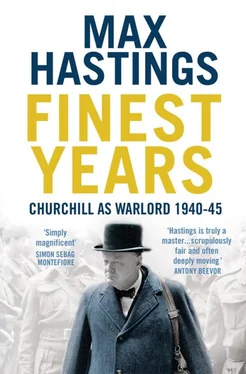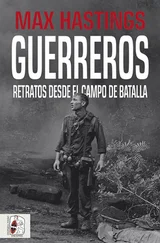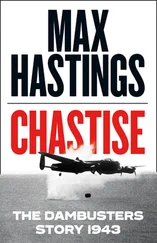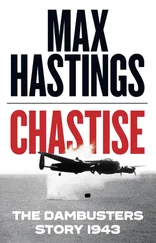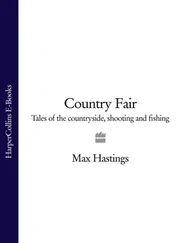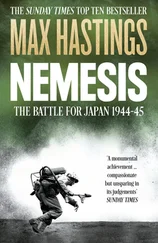Finest Years
MAX HASTINGS
Churchill as Warlord 1940-45

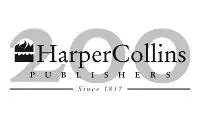
William Collins
An imprint of HarperCollins Publishers Ltd. 1 London Bridge Street London SE1 9GF www.harpercollins.com
Published by HarperPress in 2009
Copyright © Max Hastings 2009
The author asserts the moral right to be identified as the author of this work
A catalogue record for this book is available from the British Library
All rights reserved under International and Pan-American Copyright Conventions. By payment of the required fees, you have been granted the non-exclusive, non-transferable right to access and read the text of this ebook on-screen. No part of this text may be reproduced, transmitted, down-loaded, decompiled, reverse engineered, or stored in or introduced into any information storage and retrieval system, in any form or by any means, whether electronic or mechanical, now known or hereinafter invented, without the express written permission of HarperCollins ebooks
HarperCollins Publishers has made every reasonable effort to ensure that any picture content and written content in this ebook has been included or removed in accordance with the contractual and technological constraints in operation at the time of publication
Source ISBN: 9780007263684
Ebook Edition © AUGUST 2009 ISBN: 9780007344116
Version: 2017-07-26
In memory of Roy Jenkins, and our Indian summer friendship
Cover Page
Title Page
Copyright
Dedication
Epigraph
Introduction
One: The Battle of France
Two: The Two Dunkirks
Three: Invasion Fever
Four: The Battle of Britain
Five: Greek Fire
Six: Comrades
Seven: The Battle of America
Eight: A Glimpse of Arcadia
Nine: ‘The Valley of Humiliation’
Ten: Soldiers, Bosses and ‘Slackers’
Eleven: ‘Second Front Now!’
Twelve: Camels and the Bear
Thirteen: The Turn of Fortune
Fourteen: Out of the Desert
Fifteen: Sunk in the Aegean
Sixteen: Tehran
Seventeen: Setting Europe Ablaze
Eighteen: Overlord
Nineteen: Bargaining with an Empty Wallet
Twenty: Athens: ‘Wounded in the House of Our Friends’
Twenty-One: Yalta
Twenty-Two: The Final Act
Keep Reading
Notes and Sources
Select Bibliography
Index
Acknowledgements
About the Author
By the Same Author
About the Publisher
It may well be that the most glorious chapters of our history have yet to be written. Indeed, the very problems and dangers that encompass us and our country ought to make English men and women of this generation glad to be here at such a time. We ought to rejoice at the responsibilities with which destiny has honoured us, and be proud that we are guardians of our country in an age when her life is at stake.
WSC, April 1933
History with its flickering lamp stumbles along the trail of the past, trying to reconstruct its scenes, to revive its echoes, and kindle with pale gleams the passion of former days.
WSC, November 1940
Winston Churchill was the greatest Englishman and one of the greatest human beings of the twentieth century, indeed of all time. Yet beyond that bald assertion there are infinite nuances in considering his conduct of Britain’s war between 1940 and 1945, which is the theme of this book. It originated nine years ago, when Roy Jenkins was writing his biography of Churchill. Roy flattered me by inviting my comments on the typescript, chapter by chapter. Some of my suggestions he accepted, many he sensibly ignored. When we reached the Second World War, his patience expired. Exasperated by the profusion of my strictures, he said: ‘You’re trying to get me to do something which you should write yourself, if you want to!’ By that time, his health was failing. He was impatient to finish his own book, which achieved triumphant success.
In the years that followed I thought much about Churchill and the war, mindful of some Boswellian lines about Samuel Johnson: ‘He had once conceived the thought of writing The Life Of Oliver Cromwell…He at length laid aside his scheme, on discovering that all that can be told of him is already in print; and that it is impracticable to procure any authentick information in addition to what the world is already possessed of.’ Among the vast Churchillian bibliography, I was especially apprehensive about venturing anywhere near the tracks of David Reynolds’s extraordinarily original and penetrating In Command of History (2004). The author dissected successive drafts of Churchill’s war memoirs, exposing contrasts between judgements on people and events which the old statesman initially proposed to make, and those which he finally deemed it prudent to publish. Andrew Roberts has painted a striking portrait of wartime Anglo-American relations, and especially of the great summit meetings, in Masters and Commanders (2008). We have been told more about Winston Churchill than any other human being. Tens of thousands of people of many nations have recorded even the most trifling encounters, noting every word they heard him utter. The most vivid wartime memory of one soldier of Britain’s Eighth Army derived from a day in 1942 when he found the prime minister his neighbour in a North African desert latrine. Churchill’s speeches and writings fill many volumes.
Yet much remains opaque, because he wished it thus. Always mindful of his role as a stellar performer upon the stage of history, he became supremely so after 10 May 1940. He kept no diary because, he observed, to do so would be to expose his follies and inconsistencies to posterity. Within months of his ascent to the premiership, however, he told his staff that he had already schemed the chapters of the book which he would write as soon as the war was over. The outcome was a ruthlessly partial six-volume work which is poor history, if sometimes peerless prose. We shall never know with complete confidence what he thought about many personalities—for instance Roosevelt, Eisenhower, Alanbrooke, King George VI, his cabinet colleagues—because he took good care not to tell us.
Churchill’s wartime relationship with the British people was much more complex than is often acknowledged. Few denied his claims upon the premiership. But between the end of the Battle of Britain in 1940 and the Second Battle of El Alamein in November 1942, not only many ordinary citizens, but also some of his closest colleagues, wanted operational control of the war machine to be removed from his hands, and some other figure appointed to his role as Minister of Defence. It is hard to overstate the embarrassment and even shame of British people as they perceived the Russians playing a heroic part in the struggle against Nazism, while their own army seemed incapable of winning a battle. To understand Britain’s wartime experience, it appears essential to recognise, as some narratives do not, the sense of humiliation which afflicted Britain amid the failures of its soldiers, contrasted—albeit often on the basis of wildly false information—with the achievement of Stalin’s.
Churchill was dismayed by the performance of the British Army, even after victories began to come at the end of 1942. Himself a hero, he expected others likewise to show themselves heroes. In 1940, the people of Britain, together with their navy and air force, wonderfully fulfilled his hopes. Thereafter, however, much of the story of Britain’s part in the war seems to me that of the prime minister seeking more from his own nation and its warriors than they could deliver. The failure of the army to match the prime minister’s aspirations is among the central themes of this book.
Читать дальше
